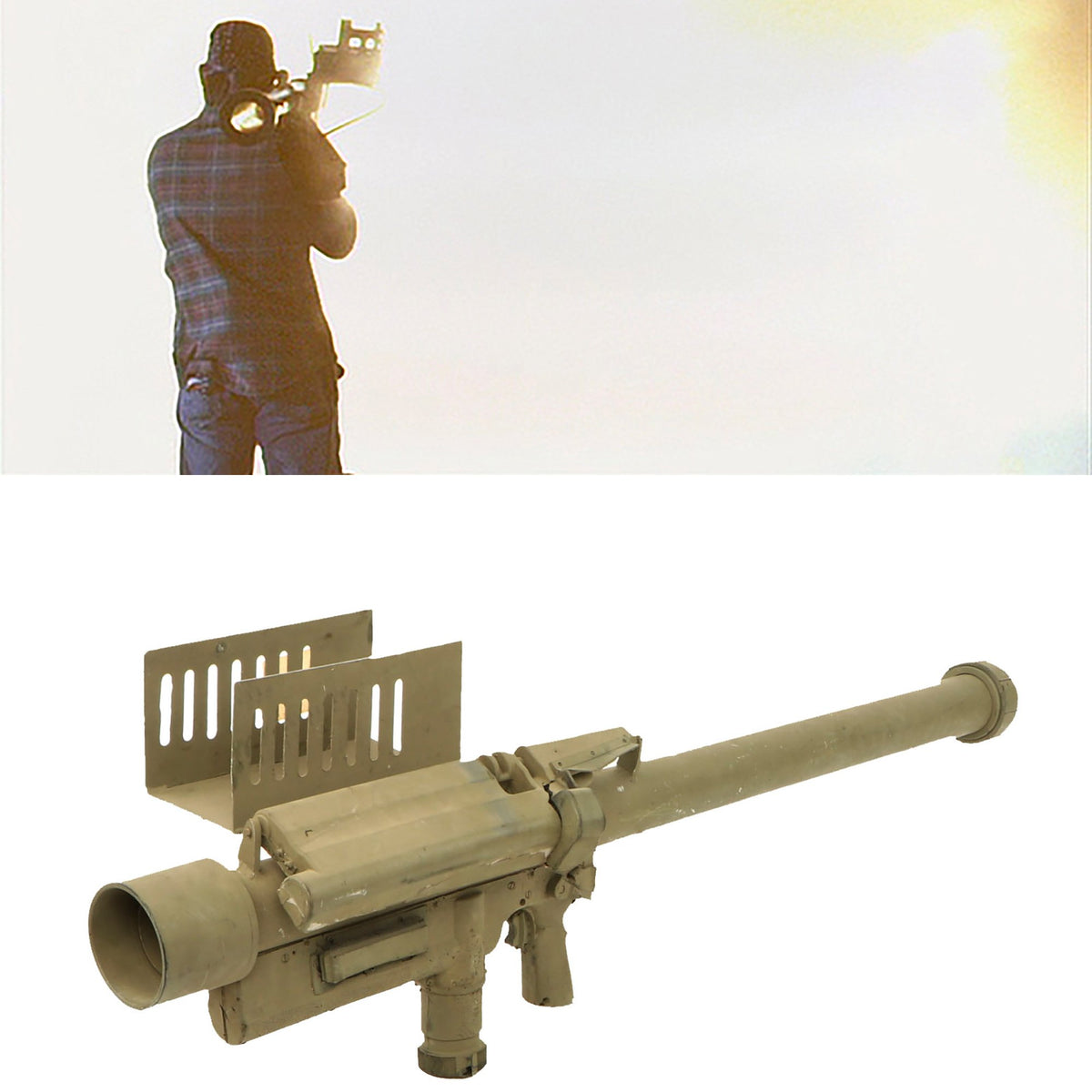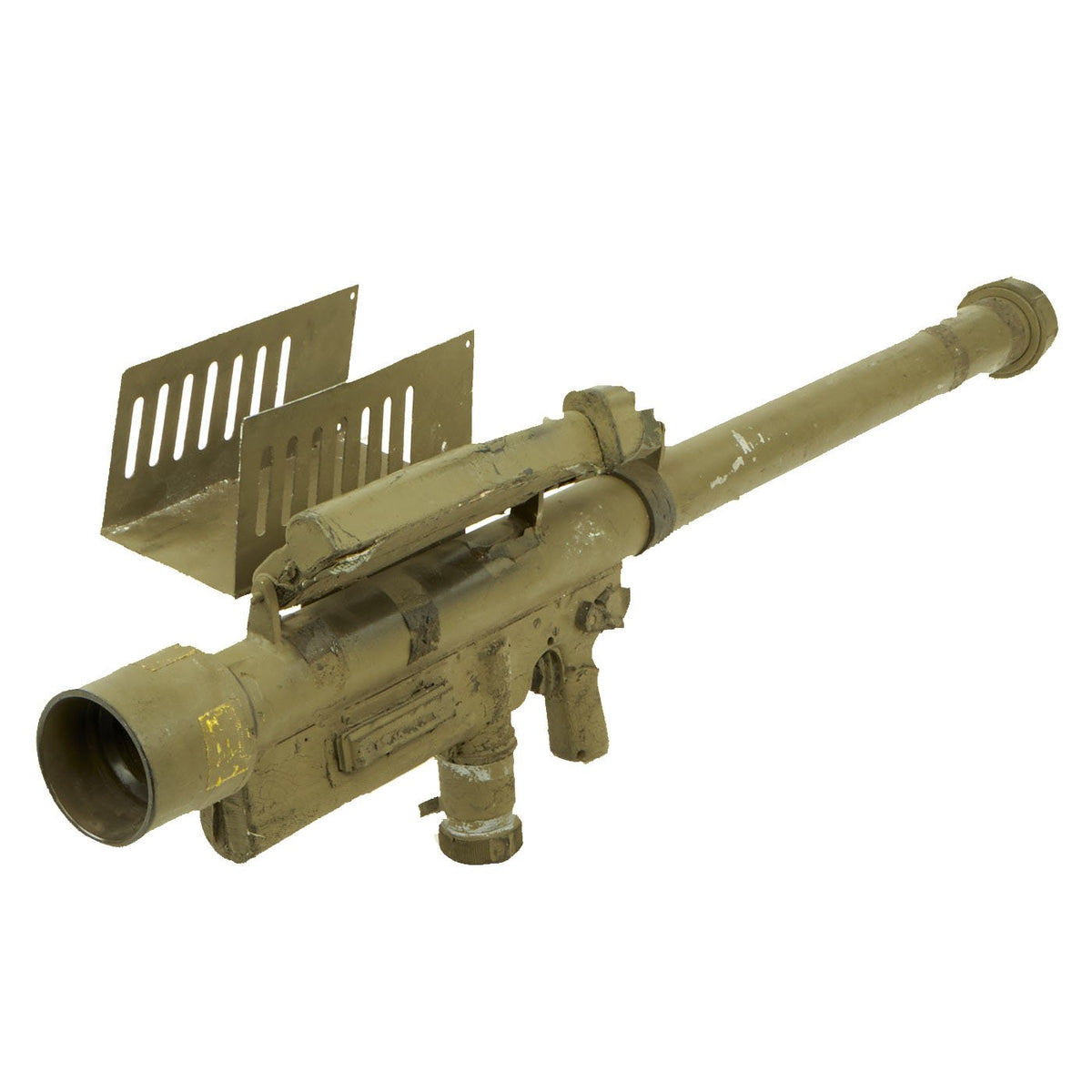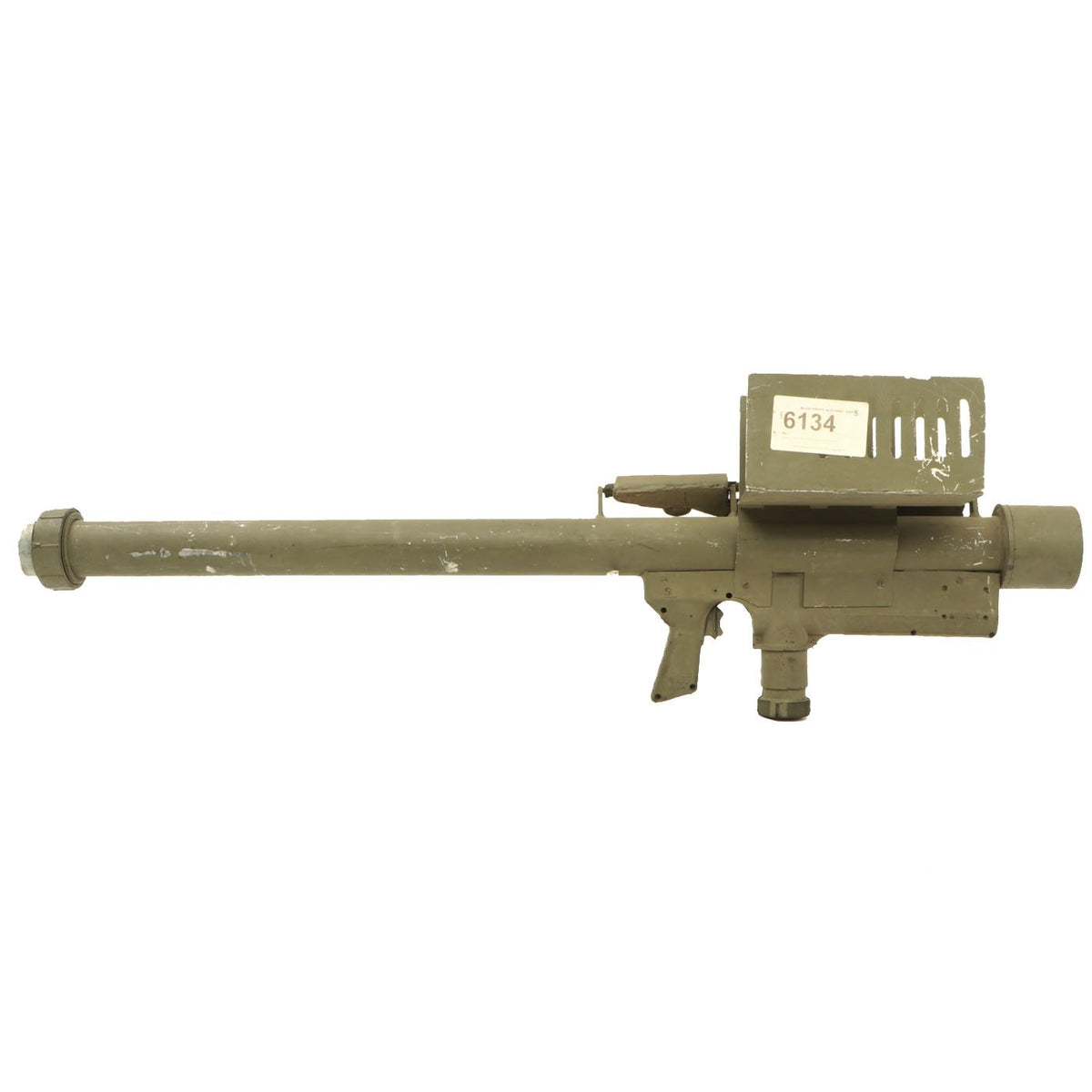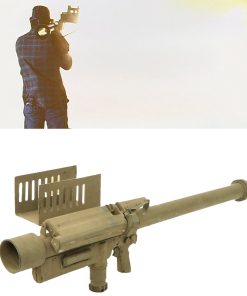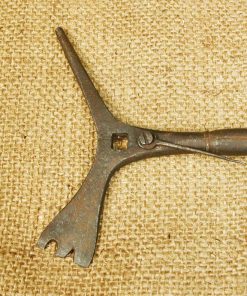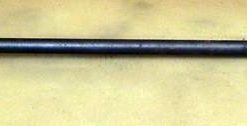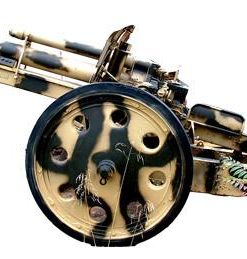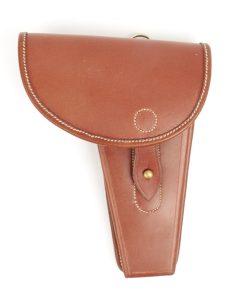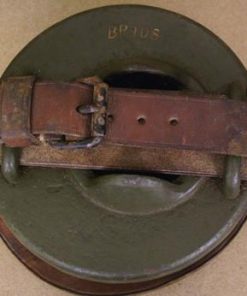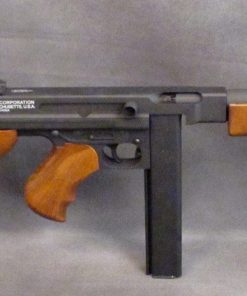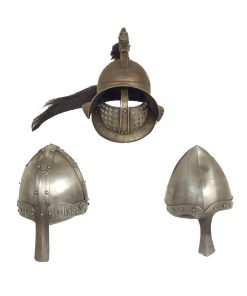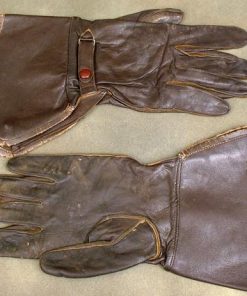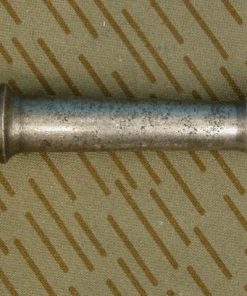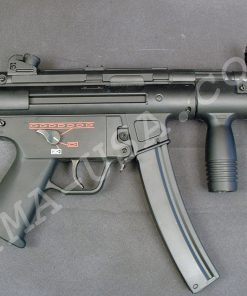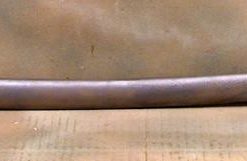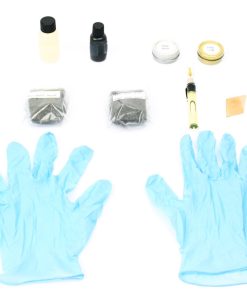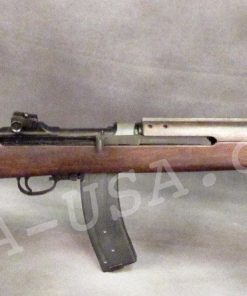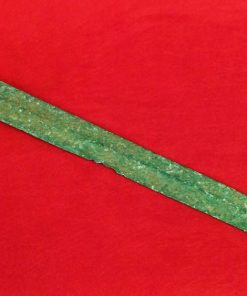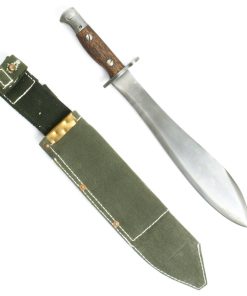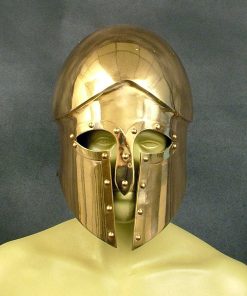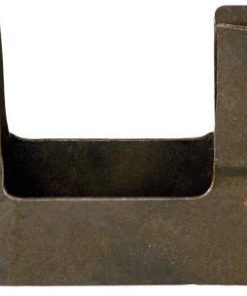Original Film Prop FIM-92A Stinger Stinger Missile Launcher From Ellis Props – As Used in Hollywood Film Under Siege Original Items
$ 325,00 $ 97,50
Original Item: Only One Available. This full scale plastic, metal and rubber replica non-firing prop gun as used in the 1992 Hollywood film Under Siege.
This example was acquired from the Ellis Props and Graphics liquidation auction. Ellis was the oldest and the largest Prop House in California until its liquidation auctions in late 1999 and early 2000.
The stinger does not have the original Ellis Prop Auction label adhered to the side, but another we recently sold did and this came from the exact same lot.
The vast Ellis collection was acquired beginning in 1908, when a pawn shop, Ellis Mercantile, began renting merchandise to early filmmakers. According to Ellis Props, it began when a studio employee wanted to buy a glass eye. The pawn shop decided to rent it in case the owner returned, and it continued the practice with other items.
This example was acquired from the Ellis Props and Graphics liquidation auction. Ellis was the oldest and the largest Prop House in California until its liquidation auctions in late 1999 and early 2000.
Original Item Only One Available. Under Siege is a 1992 action film which many dubbed as “Die Hard on a battleship.” Steven Seagal stars in the film as Casey Ryback, a US Navy cook who finds himself having to battle terrorists who have taken over the ship he serves upon, the Iowa-class battleship USS Missouri. While it did not receive support from the US Department of Defense, the production utilized aerial footage of the real USS Missouri sailing towards its final docking in Pearl Harbor and several scenes were actually shot aboard the decommissioned South Dakota-class battleship USS Alabama. The film was directed by Andrew Davis (who directed Seagal’s debut film Above the Law and who would later direct co-star Tommy Lee Jones in The Fugitive). Seagal would return as Ryback in Under Siege 2: Dark Territory.
The FIM-92 Stinger is the US military’s principle man-portable air defence system (MANPADS). It was initially developed as a simple upgrade to the FIM-43 Redeye by General Dynamics, and was called the FIM-43 Redeye II before being designated as FIM-92 in 1971 and Stinger in 1972. Technical challenges meant the first successful shoulder launch did not take place until 1975, with the initial “A” variant entering production in 1978. Originally developed as a pure passive IR-seeking system and updated to use dual-mode passive IR / UV starting with the FIM-92B in 1983 in order to defeat flares, it is a fire-and-forget weapon using a soft-launch missile with a two-stage main booster, with the business end a 6.6-pound hit-to-kill annular blast fragmentation warhead. In infantry use, it is typically issued to a two-man crew.
A Stinger has two main parts: the larger is the disposable Launch Tube Assembly, which incorporates the fiberglass launch tube, a 22-pound, 5-foot encased missile with an attached launch motor, a desiccant cartridge with a moisture indicator, and the weapon’s sighting unit. The other is the reusable gripstock assembly, which includes the trigger assembly, controls, and the folding IFF (identify friend or foe) antenna. Two additional parts are the BCU (battery coolant unit) cartridge which is inserted into a well in the underside of the gripstock with a quarter-turn to lock it (something which is almost never shown being done in media) and provides a 45 second supply of both power from a thermal battery and argon coolant gas for the missile seeker once activated (meaning the user has 45 seconds to fire the weapon once the BCU has been activated, or they will have to insert a new one), and the optional IFF interrogator, a small computer which is worn on the user’s belt and connects to the base of the pistol grip via a wire which gives both a data and power connection (the IFF antenna runs off the interrogator’s battery, not the BCU). Without the latter, the weapon’s IFF antenna does nothing: with it, the system can interrogate targets, identifying them as either friendly or unknown. The IFF only provides a “beep” response when the “challenge” button on the launcher is pressed (many short beeps means unknown, two half-second beeps at a half-second interval means positive friend, one 1.5 second beep a possible friend, no beep a malfunction), it does not prevent the Stinger from locking on or firing. The Stinger does not require the IFF antenna to be open in order to fire: frequently it is shown in the deployed position in media in scenarios where there would be no need for it or without the interrogator connected, seemingly just because it looks good.
A complete Stinger is issued as a single “weapon-round” (as opposed to a “missile-round,” which is just the LTA: Stingers are shipped long distances with the gripstocks separated to reduce their usefulness if stolen) in a protective case with either three or five BCUs, an IFF interrogator and a set of earplugs (FM 44-18-1 warns that permanent deafness will result from exposure to more than two firings without ear protection). While the gripstock is reusable, a Stinger team is usually only issued with two missile-rounds compared to four weapon-rounds, so it is not common for a Stinger to be “reloaded” in the field. Mating the gripstock to an LTA requires a protective cover be removed from the LTA’s underside: the gripstock then slides into position and is locked with a latch at the front of the assembly. The LTA used in mounted Stinger variants such as the Standard Vehicle Mounted Launcher (SVML) is identical to the MANPADS version, and LTAs can be dismounted and fitted with gripstocks as normal if the vehicle is disabled.
In 1991 the US Marine Corps began a program called WASP (Wide-Angle Stinger Pointer) to develop a night-vision sight for the Stinger. Raytheon designed a sight derived from their existing AN/PAS-13B, the AN/PAS-18, which was adopted by the USMC as the Stinger Night Sight (SNS) in 1993.
Fast Shipping with Professional Packaging
Thanks to our longstanding association with UPS FedEx DHL, and other major international carriers, we are able to provide a range of shipping options. Our warehouse staff is expertly trained and will wrap your products according to our exact and precise specifications. Prior to shipping, your goods will be thoroughly examined and securely secured. We ship to thousands clients each day across multiple countries. This shows how we're dedicated to be the largest retailer on the internet. Warehouses and distribution centres can be located throughout Europe as well as the USA.
Note: Orders with more than one item will be assigned a processing date depending on the item.
Before shipping before shipping, we'll conduct a thorough inspection of the items you have ordered. Today, the majority of orders will be delivered within 48 hours. The delivery time will be between 3-7 days.
Returns
The stock is dynamic and we cannot completely manage it because multiple stakeholders are involved, including our factory and warehouse. So the actual stock may alter at any time. It's possible that you may not receive your order once the order has been made.
Our policy is valid for a period of 30 days. If you don't receive the product within 30 days, we are not able to issue a refund or an exchange.
You can only return an item if it is unused and in the same state as the day you received it. You must have the item in its original packaging.
Related products
Uncategorized
Uncategorized
Band of Brothers ORIGINAL GERMAN WWII Le. F.H. 18 10.5cm ARTILLERY PIECE Original Items
Uncategorized
Uncategorized
Uncategorized
Angolan Rebel 1970s era 60mm Inert Display Mortar from Angolan Civil War Original Items
Uncategorized
Australian WWII Owen MK1 Machine Carbine SMG Custom Fabricated Replica with Sling Original Items
Uncategorized
Uncategorized
Uncategorized
Uncategorized
Uncategorized
Uncategorized
Uncategorized
Uncategorized
Uncategorized
Uncategorized
Uncategorized
